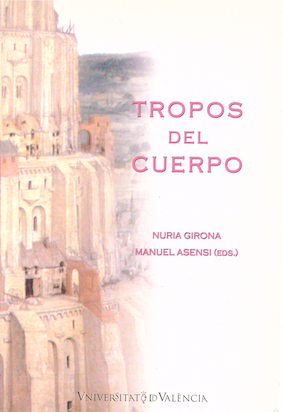Tengo, tengo, tengo... tú no tienes nada’ o de los peligros de ciertas ‘prácticas subversivas
DOI:
https://doi.org/10.7203/qf-elit.v9i0.5141Keywords:
sex, gender, policy, law Abstract
Abstract
This text it’s thought like a rereading and an answer to the Beatriz Preciado’s Manifiesto contrasexual and to slogans sent by this author within the framework of the Maratón Post-porno organized by the MACBA of Barcelona. If Beatriz Preciado advocates a meta-constructivism (of gender, but also of sex), that it looks for beyond the “false debate” in. Feminism (esencialism versus constructivism), derived the against-sexual proposals of him give rise to a whole series of questions. It has sense to retire a law to replace it by another one? to replace a normative sexual practice that excludes, punishes and imposes, by other than happens equally normative, excluding, punitive? Are not these the alignments for a new fundamentalism of the exclusion of the divergent thing? The answer is in the search of the possibility of own’s expression of the gendre and the sexuality within an ample frame that defends the coexistence of different types from manifestation before a mandatory sentence. The work is arduous and the present panorama is not quite promissory, so it is not more than to work so that the conditions can occur in which no minority, nor no majority –they are as they will be–, end up constituting itself excluding.
 Downloads
Downloads
Downloads
Published
How to Cite
-
Abstract902
-
PDF (Español)361
Issue
Section
License
 Este obra está bajo una licencia de Creative Commons Reconocimiento-NoComercial-SinObraDerivada 4.0 Internacional.
Este obra está bajo una licencia de Creative Commons Reconocimiento-NoComercial-SinObraDerivada 4.0 Internacional.
Authors who publish with this journal agree to the following terms:
- Authors retain copyright and grant the journal right of first publication with the work simultaneously licensed under a Creative Commons Attribution License that allows others to share the work with an acknowledgement of the work's authorship and initial publication in this journal.
- Authors are able to enter into separate, additional contractual arrangements for the non-exclusive distribution of the journal's published version of the work (e.g., post it to an institutional repository or publish it in a book), with an acknowledgement of its initial publication in this journal.
- Authors are permitted and encouraged to post their work online (e.g., in institutional repositories or on their website) prior to and during the submission process, as it can lead to productive exchanges, as well as earlier and greater citation of published work (See The Effect of Open Access).




